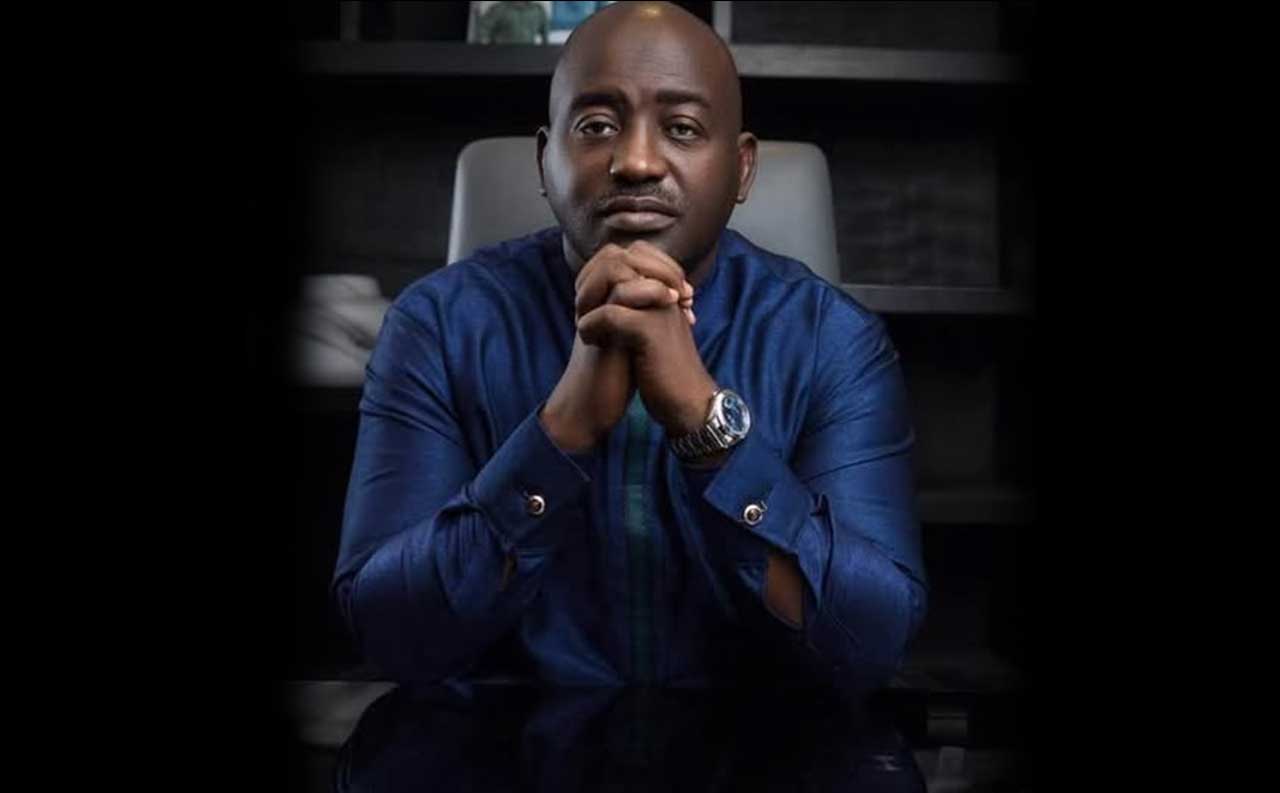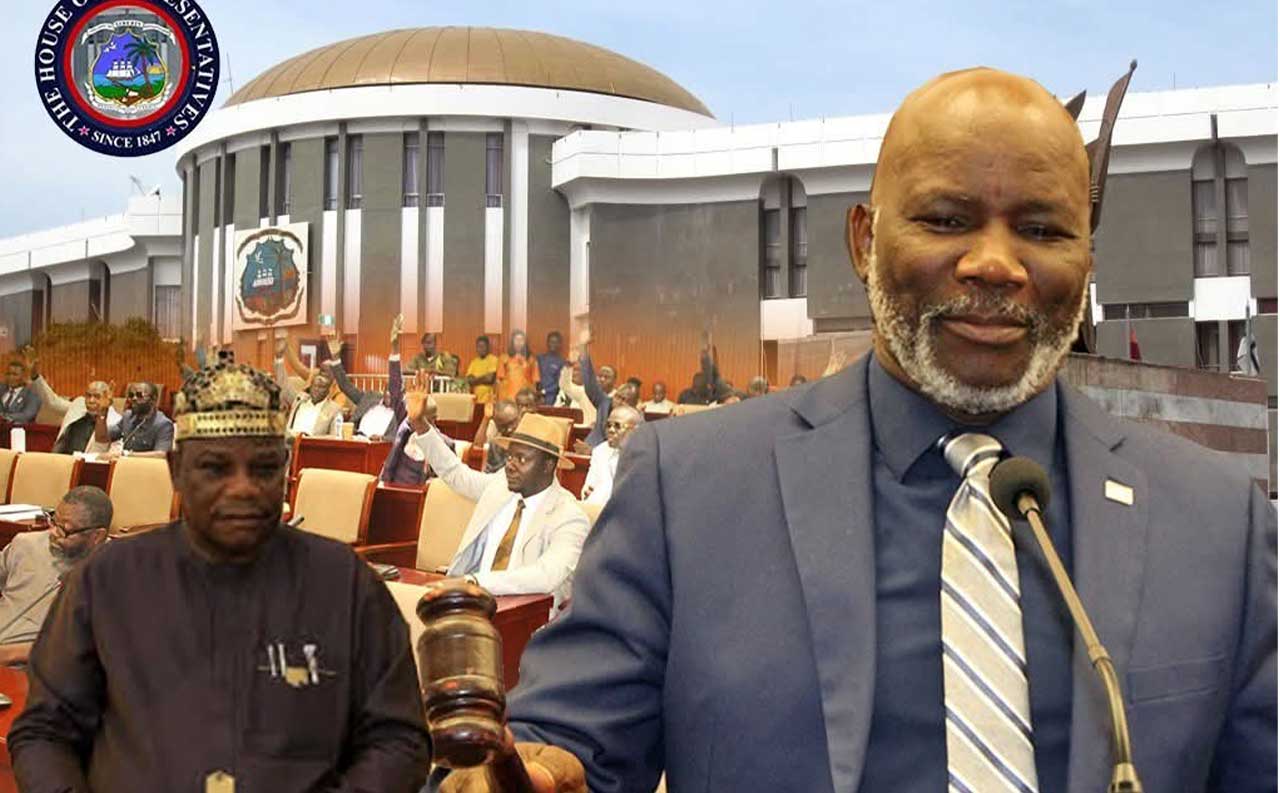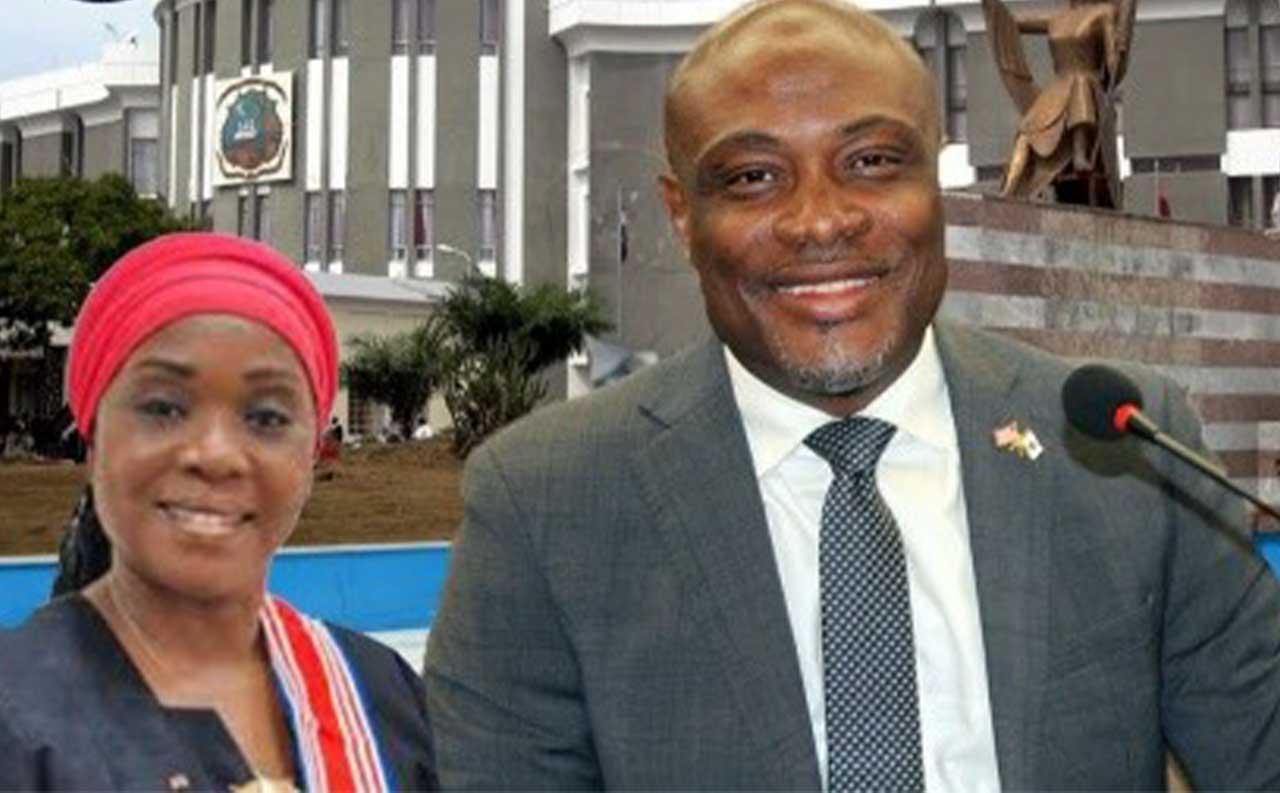Rule of Law Legislative Caucus in support of embattled Speaker J. Fonati Koffa has disclosed that members from the Minority Bloc of the House of Representatives have decided to return to session following the Supreme Court’s failure to clarify their ruling in the illegal removal of Speaker Koffa
Addressing a press conference on Tuesday, January 7, 2024, Rule of Law Legislative Caucus Chairman Musa H. Bility said it was time they took a different approach to resolve their differences through legislative interactions.
The Nimba County Representative said they intend to use their legislative engagement to express their objections in the following: “The election of a Speaker when there is a Speaker who was legitimately elected in accordance with the Constitution and our Rules and the suspension and withholding of the salaries of our colleagues in total contravention of our rules,” Bility said.
According to him, the dissolution and reconstitution of all Committees are in violation of their rules as well as the refusal to release benefits to suspended lawmakers by Majority Bloc which the Ministry of Finance and Development Planning (MFDP) has fully remitted into the account of the House of Representatives.
However, Bility said they remain committed to the rule of law which includes taking further appropriate legal actions while pursuing legislative resolutions on the floor of the House of Representatives.
He further commended People of Liberia for standing them being assured of their commitment to the rule of law. The statement on Friday can be considered as what could be the beginning to the end of the leadership impasse that has rocked the House of Representatives for nearly three months.
It can be recalled that the Supreme Court of Liberia recently ruled in the ongoing impasse at the House of Representatives over the removal of embattled Speaker J. Fonati Koffa and the subsequent controversial election of Representative Richard Nagbe Koon as speaker.
The court ruled and ordered the Clerk of Court, Cllr. Sam Mamulu, to inform the both parties to settle their matter, describes the entire saga as ultra vires.
Ultra vires means “beyond the powers.” It is used in law to describe an action that is taken without the legal authority required. This means the court as another branch of government cannot interrupt another branch of government activities that is beyond its power.
Delivering the opinion of the Supreme Court, Chief Justice Sie-A-Nyene G. Yuoh said under these circumstances, the court cannot do for the legislature what is within its purview to do, and doing so will be a violation of the constitutional mandate on the separation of powers.
She made it clear on Friday, December 6, 2024, that in the instant where the Speaker is presiding over a minority, the constitution devoids the mechanism of how the minority is to compel the absent members for functions.
Chief Justice Yuoh said the House of Representatives promulgated no enabling status or standing rules setting forth the process for compelling absentees to attend session as seen in Article 33 of the 1986 Constitution.
Speaking on the issue of whether or not the court has the power to prop the matters, the court said in pursuant to Article 66 of the Constitution, the court shall be the final arbiter of constitutional issues and shall exercise final appellate jurisdiction in all cases whether emanating from courts of records or others.
Who wins or loses Friday’s case, the Chief Justice said the House of Representatives should conduct themselves accordingly. The court is warning members of the House concerning the violation of the doctrine of powers of separation; as such, to conduct itself accordingly doesn’t give anyone a win. The Chief Justice wants members of the House of Representatives to put their house in order to avoid a different branch making decisions in their matter.
She cited Article 33 and 49 which is the main reliance of the court ruling. The Chief Justice said in pursuant to Article 66 of the Constitution “the Supreme Court shall be the final arbiter of constitutional issues and shall exercise final appellate jurisdiction in all cases whether emanating from the courts of record, court not of records, administrative agencies, autonomous agencies or any authority, both as to the law and fact…”
According to her, the court has the jurisdiction to decide constitutional issues arising out of internal dissension among the members of the Legislature, as in the present case.
The Chief Justice said it is the law in vogue that the constitution must be interpreted in light of the entire document rather than a sequestered pronouncement because every provision is of equal importance and even where there is apparent discrepancy between different provisions, the court should harmonize them if possible.
The court’s interpretation of Article 33 of the Constitution (1986) is that whether a simple majority is sitting or a lower number, in both cases a Presiding Officer, defined in Article 49 of the Constitution is the Speaker, and in his/her absence, the Deputy Speaker.
She ruled that in the event where the Speaker is presiding over a minority, the Constitution is devoid of the mechanism for how the minority is to compel attendance of absent members; and the Legislature has promulgated no enabling statute or standing rules setting forth the process for compelling absentee members to attend sessions as envisioned under Article 33 of the Constitution.



